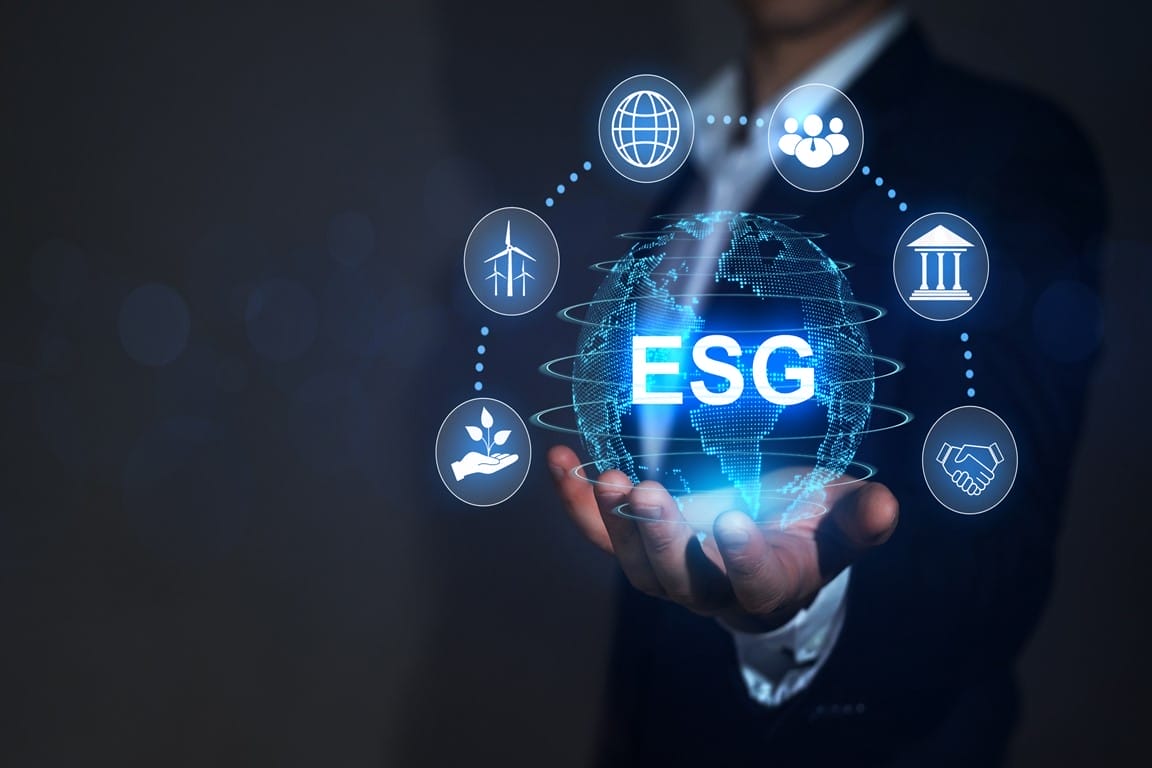Environmental, social, and governance (ESG) are three key pillars of performance by which a business’s or country’s impact on society, and its effect on environmental sustainability, can be evaluated. The 17 Sustainable Development Goals (SDGs) proposed by the United Nations have direct or indirect linkage to each of the three pillars.
The following are ESG focus areas:
-
- The environmental component covers how a business interacts with the natural environment, the impacts of its operations, and the actions it takes to alleviate adverse effects through effective risk mitigation.
- The social aspect encompasses how an organization’s activities affect people—from its workforce to customers, local communities, and those working in its extended supply chain.
- The governance facet relates to the policies, structures, and procedures of how an organization or country functions.
ESG is becoming a subject of interest for analysts, investors, consumers, and employees. This has brought about discussions on ESG at the corporate boardroom level. Multistakeholder engagement and dialog on sustainability goals such as efficient environmental protection, corporate social responsibility, good economic growth, and robust corporate governance serve to amalgamate business goals with the external environment, including market volatility, climate change, and increased regulatory pressure. ESG criteria are increasingly becoming drivers to help investors avoid investing in companies that may expose their investments to greater financial risk for noncompliance towards sustainability and societal goals.
ESG is becoming imperative for enterprises to gain investor confidence and enhance brand positioning. Furthermore, sustainability imperatives are impacting the way procurement is done. Procurement teams are giving higher priority to suppliers who are more aligned to ESG objectives. Thus, enterprises define organizational goals under each pillar of ESG and adopt multiple initiatives to achieve the same objectives. The primary facilitator to accomplish these is technology. Advanced technologies like automation, artificial intelligence, analytics, the Internet of Things, blockchain, and the cloud are easing cumbersome processes such as impact measurement and monitoring, ESG data collection, and screening.
Complementing our ESG consulting services, Avasant has built dedicated ESG research offerings to provide information to service providers, technology providers, and enterprises on the latest market trends and support them in their ESG initiatives. For our current year ESG calendar, we will promote research categories:
-
- An ESG Index for comparing IT and business process outsourcing service provider internal sustainability initiatives and reporting metrics
- An ESG-related RadarView for assessing service providers, covering their ESG-driven enterprise offerings
- RadarView Scan reports exploring each essential product category and assessing the top providers to help enterprises identify and down-select providers
- Research Bytes for detailed analysis on ESG trends






